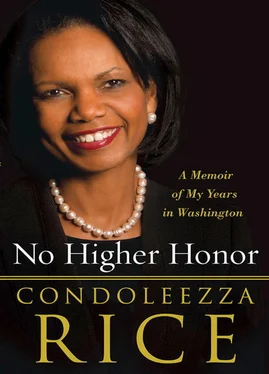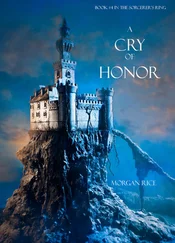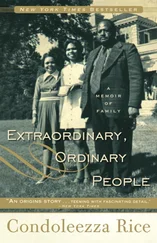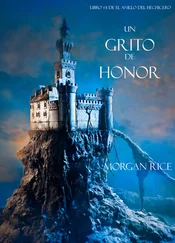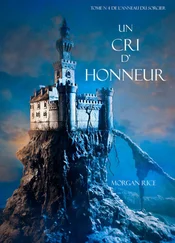Still, we are also an example of why institutions matter in moving toward justice. When Martin Luther King or Rosa Parks—one a recognized national leader, the other an ordinary citizen—wanted to challenge the status quo, they could appeal directly to America’s own principles. They didn’t have to ask the United States to be something else, only to be what it professed to be. That’s the value of democratic institutions, even if their promise is not completely fulfilled immediately. At first, constitutions or bills of rights may exist only on paper. But they exist. And as people begin to appeal to them, to use them, to insist on respect for them by those in positions of authority, these institutions gain legitimacy and power.
Yet political change is necessary but not sufficient in itself for the success of democracy. When people choose their leaders they tend to expect more of them in terms of economic prosperity and social justice. That is why support for democracy must be accompanied by support for development. The Millennium Challenge Corporation was created with this in mind. Those who are governing wisely and democratically can use foreign assistance to deliver for their people—better health care, education, and prospects for employment. Ultimately, good leaders will free their economies and their markets and attract private investment. But they need help at the start, and our investment in them will pay off many times over as the number of stable, responsible democracies grows.
It is why, having helped Afghans and Iraqis win their freedom, we have an ongoing stake in the maturation of their nascent institutions. If the governments are called to fulfill the contract their people have with them, the democracies will over time stabilize and mature. Citizens will use those institutions to address their grievances and to pursue remedies. Most important, they will know that the ultimate weapon is in their hands: they can change their leaders peacefully. And in time, terrorists and hostile neighbors will find it more difficult to shake the foundations of these governments.
Nowhere is this truer than in the Middle East where the Arab Spring has freed millions. Americans can help to channel the developments there in a positive direction. We have influence with the militaries in Egypt and Tunisia; with civil society and political activists, many of whom we’ve helped to train through America’s nongovernmental institutions; and with entrepreneurs and businesspeople who need a way to access the power of international markets to deliver jobs and prosperity.
In other places, our friends—particularly the monarchs of the region—still have a chance to reform now before it’s too late. The United States can coax these monarchies to adopt constitutions and reforms that give greater voice to their people. The changes will strengthen moderate voices across the region, including in the Palestinian territories. The Palestinians have made great strides toward building democratic and accountable governing structures—even in the absence of statehood. The United States and the international community—but most especially, Israelis and Arabs—have an interest in providing a framework toward peace in which those hard-won reforms can be sustained.
And to our enemies, the Syrian and Iranian regimes, we should say, “Your time has come. Whatever follows you is unlikely to be worse, for your people and for the world, than who you have been.”
To say that democracy is ultimately stabilizing is not to say that the pathway will be smooth and without setbacks, even violence. Because reform has come late in the Middle East, the most organized forces are the extremists who gathered in radical mosques and madrassas while authoritarians pushed decent political forces out of the public square. The radical Islamists will likely contest in elections. But perhaps it’s better that way. In the light of day, they will have to answer questions about individual rights and religious freedom and about the role of women. They will have to explain too how they intend to improve people’s lives. When the only vision they have to offer is one of oppression and destruction, they will surely fail, removing not only the threat they pose to the region but also across the globe.
It all sounds like very heavy lifting, and as I’ve traveled abroad since leaving office, people ask me if the United States is still prepared to be a catalyst for democratic change and a partner for those who seek it. The question is often sparked by the second of those great international shocks: the financial crisis and its aftermath. Is America out of steam, confidence, and optimism? I don’t believe that we are—and I don’t believe we have a choice to retire to the sidelines.
I told President Bush a few months before leaving office that people were tired of us. After 9/11 we dared to think in broad historical strokes, believing that many of the old assumptions about stability and security no longer held. I realize now that it may have seemed unsettling—and exhausting—at home and abroad. But the legacy of 9/11 is a reminder that indeed our interests and our values are linked. That lesson was never more evident than when the consequences of the freedom gap in the Middle East exploded here at home.
As secretary of state I was always aware of the constraints of the world as it is and resolved to practice the art of the possible. But I also tried not to lose sight of the world as it could be, and insisted on a path toward that end. This is the long-term work of diplomacy. History will judge how well we did. I can live with that, and I am grateful for the chance to have tried.
In composing this memoir, I drew upon a variety of materials to supplement my own recollections of the consequential events that shaped my time at the White House and State Department. I relied on my daily calendars and official trip logs to recall various meetings and travel over the course of my eight years in government. I am enormously grateful to Liz Lineberry for keeping such meticulous records.
I also drew heavily on the public papers of the George W. Bush presidency as well as those released by the State Department from 2005 to 2009, including speeches, public statements, reports, publications, and transcripts of briefings, congressional testimony, interviews, and press conferences. These materials are publicly available on the archived websites for the George W. Bush White House ( http://georgewbush-whitehouse.archives.gov/) and the State Department ( http://2001–2009.state.gov).
In addition, I consulted documents housed at the George W. Bush Presidential Library and my papers at the State Department. On several occasions, Peter Haligas made it possible for me to review my NSC papers at the library’s temporary facility in Louisville, Texas, and he, Shannon Jarrett, and David Sabo assisted in processing declassification requests. Clarence Finney, director of the office of correspondence and records at the State Department, made it possible for me to review my papers in California. I am indebted to the dedicated employees of the National Archives and Records Administration who are preserving these documents from this consequential period of American history not only for me but also for future generations of scholars.
A number of my colleagues and former associates in government generously participated in interviews for this book and helped sharpen my memory of key events. The Presidential Oral History Program at the University of Virginia’s Miller Center of Public Affairs hosted roundtable discussions with some of my senior staff members at the State Department. I am grateful to Russell Riley, the chair of the program, Bryan Craig, Katrina Kuhn, Barbara Perry, Marc Selverstone, and Seyom Brown for organizing these. Many other colleagues provided helpful answers to my various inquiries throughout this process.
Читать дальше
